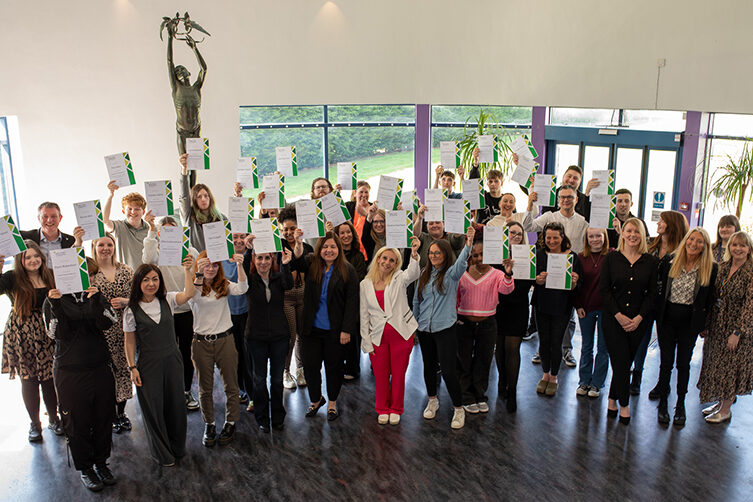Global Survey Comparing University Mindsets and Student Expectations Identifies Critical Shifts in the Learner Experience

Global Anthology research study reveals accessibility barriers and technology needs in higher education
Anthology, a leading provider of education solutions that support the entire learner lifecycle, today announced the results of its 2022 global research study: Comparing Global University Mindsets and Student Expectations. The study surveyed more than 5,000 higher education leaders and current students from countries around the world, including the United States, Australia, Brazil, Colombia, India, Japan, Spain, Saudi Arabia, South Africa and the United Kingdom.
Findings revealed that student expectations following the pandemic do not fully align with what university leaders are envisioning for the future, indicating an opportunity for higher education institutions to make adjustments to the learner experience in support of better outcomes.
“As universities continue to drive digital transformation, they’re faced with new hurdles around everything from course delivery and support services to accessibility and how they equip their students and staff with technology,” said Jim Milton, Chairman and CEO at Anthology. “We believe that technology plays a vital role in shaping the future of higher education across the globe, and results from this study validate that viewpoint as leaders consider the impact of technology and data on the overall student experience.”
Financial Barriers and Lack of Technology Access
Outside the pandemic,the economy continues to have the most significant impact on learners across all regions (73 percent), followed by a lack of access to technology (35 percent). Lack of technology access was significantly higher in the Middle East and Africa, where 54 percent of students indicated this was a challenge. University leaders in most regions are largely in sync with these challenges but only 30 percent of higher education leaders in the Middle East and Africa felt that technology access was a concern for their students, indicating a discrepancy between their perception and the student experience.
Hybrid Instruction for the Foreseeable Future
More than 80 percent of students globally now prefer that at least some of their courses or instructional meetings take place online. Leaders are moving their universities in the right direction, with more than a third (38 percent) indicating that a mix of online and in-person course delivery would be the model at their institution by 2025, increasing from 16 percent currently.
Nearly a quarter of North American leaders (24 percent) stated that courses would still be offered in an entirely in-person format by 2025 – a significantly higher percentage than any other region. The highest percentage of students interested in fully asynchronous courses were from North America, representing the largest gap compared to student preferences for how courses are offered.
Investing in Holistic Technology
Learners globally want – and expect – technology to be more prevalent in their higher education experience and university leaders agree, with 60 percentstating that their university currently lacks the appropriate digital learning tools to help students succeed. While only 26 percent of university leaders have significantly increased the number of digital learning tools utilized over the past two years, more than half are considering additional investments in technology moving forward.
The majority (94 percent) of university leaders agree that a holistic view of learner data pulled across multiple systems would benefit their team and help more students achieve their goals. The same percentage indicate that their university is actively looking for new opportunities to aggregate and analyze data to drive more insights, ultimately seeking to use data to help improve outcomes for student populations through personalization.
For more information and to access the report, click here.











Responses